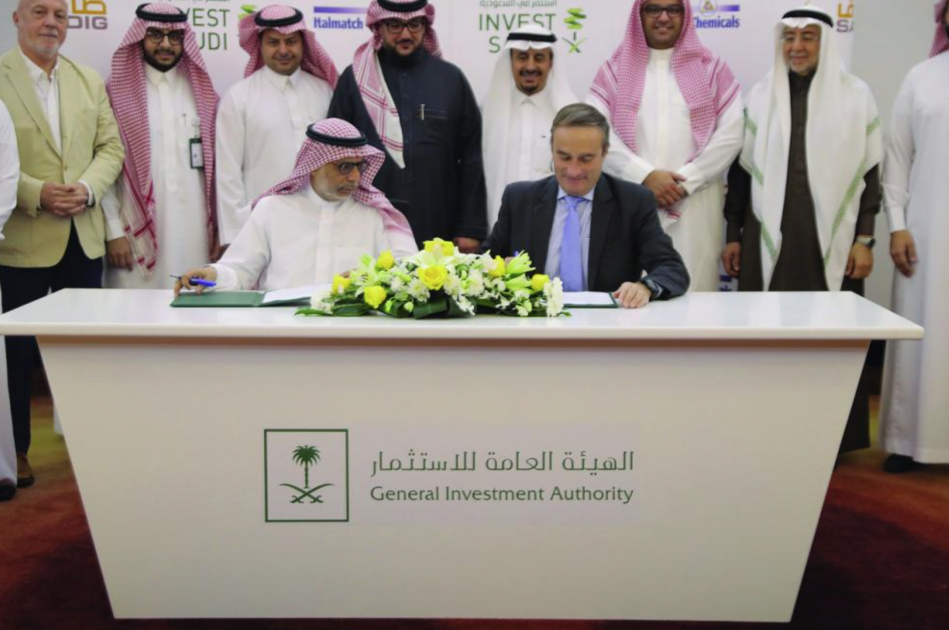
SAGIA sponsors $300 million integrated chemical complex
The Saudi General Investment Authority (SAGIA) has sponsored at its Riyadh head office, the signing of an agreement between Italmatch Chemicals and Sadiq Industries for establishing an integrated industrial chemical complex for the phosphorous industry in the city of Waad Al-Shamal and the Jubail Industrial City, with an estimated investment volume of $300 million.
“The project will enhance the industrial sector in Waad Al-Shamal, open up more opportunities for SMEs in manufacturing, and boost the growth of the specialized chemicals industry in the Kingdom,” said Sultan Mufti, SAGIA’s deputy governor for promotion of investment.
Mufti expected the project to have a positive impact on the national economy, contribute to GDP growth, and provide more than 300 job opportunities in the Northern Territory.
“The project realizes the IKTVA vision for creating new local industries, which adds great value to Saudi industry and creates technical employment opportunities, in line with the Kingdom’s global position in energy and raw materials,” said Italmatch CEO Sergio Iorio.
He added that his company had aimed to invest in local manufacturing industries in a manner befitting the Kingdom’s needs for growing markets.
Sadiq Industries Chairman Abdullah Buqshan said the project is aligned with Vision 2030, acknowledging the major role played by SAGIA and the Ministry of Energy, Industry and Mineral Resources in attracting quality investments and developing the Saudi industry.
“The project aims to enable development of new chemicals in the Kingdom, which will empower and promote more manufacturing industries, and contribute to the growth of the Saudi economy and exports,” said Sadiq CEO Ahmed Al-Obeid.
It is noteworthy that the joint venture is consistent with the national strategy for industry in the Kingdom. It will benefit from raw phosphate for the production of phosphorus, later converted into high-value specialist materials. Such materials are also used in several industries, including water treatment, oil and gas, lubricants, and plastics. Among the unique advantages of the project is the localization of new industries with modern technology in partnership with a foreign partner.
























